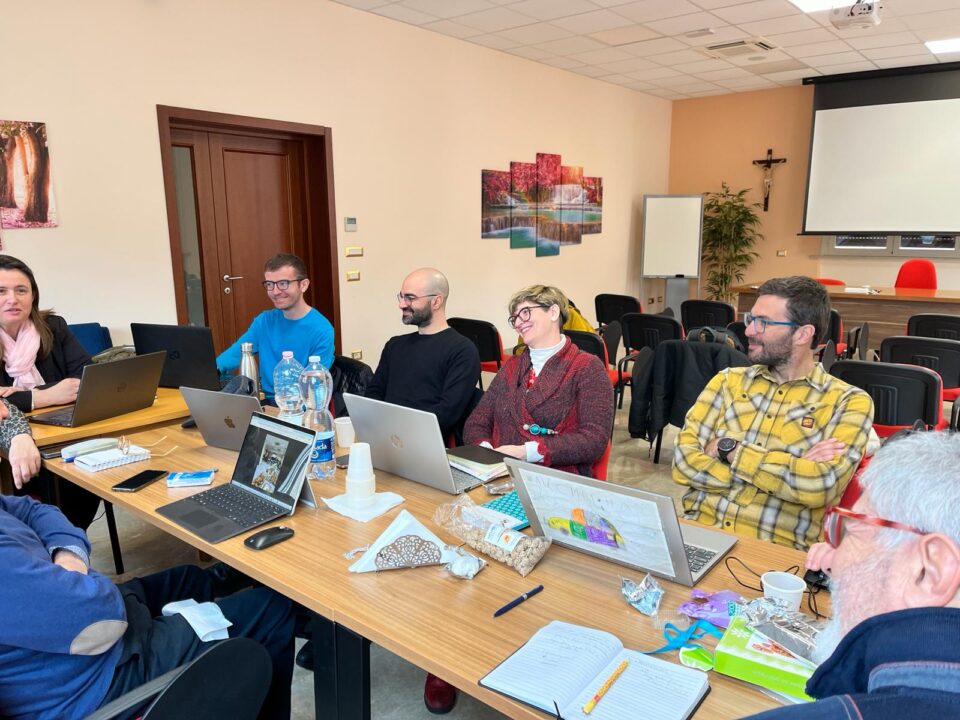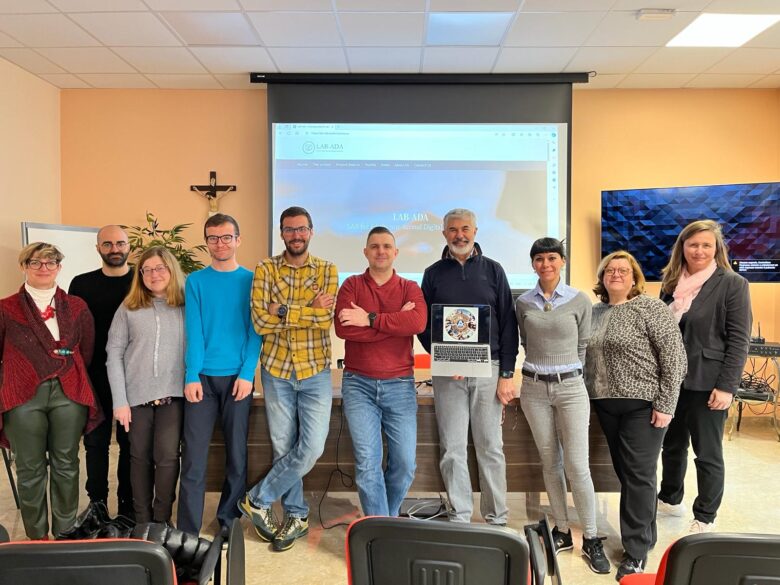LAB for Adults non-formal Digital Awareness (LAB-ADA)
Latest Results of the Partnership
Lab-Ada Pillar Skillset
https://issuu.com/home/published/lab-ada_pillar-skillset
Lab-Ada Desk research
https://issuu.com/home/published/lab-ada_desk-research_final
Lab-Ada Overview
https://issuu.com/home/published/lab-ada_r1-overview
According to Cedefop (2020), estimates tell us that there are 128 million adults in the EU-28+ with the potential for upskilling and reskilling. This is an impressive pool of untapped talent waiting to be unlocked. Analysis by skill dimension of the risk of being low-skilled shows that, compared to the average adult population, older people are more is a particular risk of being low-skilled. Most adults with low skills lead a busy life which leaves little time for learning. In fact, shortage of time is the biggest barrier to learning participation for low-skilled adults according to OECD PIAAC data, be this due to work-related (22%) or family-related reasons (19%). At the same time, adults with low skills have limited bargaining power when asking their employer for time off to participate in training. Further, they often cannot afford to take unpaid leave to pursue the training. Giving every adult, including the low-skilled, the right to take leave for education and training purposes can increase training participation. This should go hand-in-hand with other measures that increase flexibility and allow adults to fit learning into their busy schedules, such as evening and weekend provision, part-time and modular programmes and distance learning. Not many adults have the time and motivation to take part in lengthy courses to upskill or reskill. At the same time, technological change will make those with high skills, more productive and hence more sought after by employers.
The labour market is actually a global and supranational entity. There are of course national differences and niches but the new technologies and the expected changes are far more transnational than local or national. The partnership idea is to arrive at a definition of tools and outputs that will be fully transnational and fully adopted by all partners joining the group.
Based on the needs analysis and preliminary research carried out by partners, the LAB-ADA project sets the overall goal to develop an innovative web learning approach for advancing and sustaining low-skilled adults’ possibilities to gain enough knowledge, also to foster their well-being and mental health through the acquisition of needed skills that would help them make changes effectively, master their life and enter the desirable job market.

This project aims to:
– create a tool for adult educators, adults which consists of non-formal digital learning possibilities;
– expand the offer of high-quality courses and increase participation through effective awareness, orientation and motivation strategies for groups of adult learners using the results;
– build a holistic framework and a replicable training model to manage the adoption of new skills among staff members of the organisations and low-skilled workers.
Aims
Project LAB-ADA’s objectives are to create outputs useful for adults, adult educators, labour advisors, policy-makers, social partners, public employment services and learning providers that can help to create better opportunities for adults with low skills.
What is more, the majority of low-skilled adults take part in learning to advance their careers. However, learning opportunities do not always equip them with the skills needed for the labour market. Only two in three adults think that participation in training helped them achieve positive employment outcomes, such as performing better in their current job, being promoted, getting a (new) job or a higher salary. Further, two in five adults who take part in training, participate in health and safety training only, while knowledge of health and safety is an important requirement to reduce the likelihood of work accidents. We will work on innovation to make adult learning more interesting and relevant for adults with low skills. The direct target groups of the LAB-ADA project are low-skilled adults and adult educators.
The needs of the target groups will be fulfilled, while supporting: a) adults with low skills to upskill and reskill which is imperative for a future of work that is both more productive and inclusive; b) adult educators giving them tools of non-formal digital learning opportunities.
Additional to the Target group of the LAB-ADA project, the target group of results use will be:
-Formal and non-formal adult learning providers including secondary schools, colleges, universities, employers, unions, community centres, non-profit organizations, public libraries, private companies, religious institutions, museums, etc. -Individuals: Employed, unemployed adults, with a different purposes, including job or career reasons, better well-being reasons, educational reasons, or personal interests.
-Adults education administrators, programs designers, etc.
Results
In the present description of the expected results as a product of the project activities, to have the following results are expected:
-Mobilisation of the target groups: after an analysis of the needs of all local formative institutions, labour-dedicated institutions and international data, each partner will involve a huge number of target groups as teachers, trainers, tutors, personnel involved in active employment policies, figures involved in the education processes of adults and adults (teacher, training designer, content developer), counsellor, mentors in order to activate them in the search of new ways and existing digital non-formal learning possibilities to teach the new skills requested by labour market of the future;
-A bunch of surveys: we expect to give the new instrument to help low-skilled adults to try non-formal digital learning possibilities.
-Increased use of digital technologies at work. It is raising the demand for new skills along three lines. First, acquire of generic ICT, second, the use of ICT products and services, third, the use of ICTs is changing the way work is carried out and raising the demand for ICT-complementary skills.
-Results realisation: outputs represent a real “toolbox” for those who are involved in creating the new skills useful for the future labour market and those who will learn these skills.
We will create a guide with possible non-formal learning opportunities for low-skilled adults.
What is more, the majority of low-skilled adults take part in learning to advance their careers (see below). However, learning opportunities do not always equip them with the skills needed for the labour market. Only two in three adults think that participation in training helped them achieve positive employment outcomes, such as performing better in their current job, being promoted, getting a (new) job or a higher salary. Further, two in five adults who take part in training, participate in health and safety training only, while knowledge of health and safety is an important requirement to reduce the likelihood of work accidents. We will work on innovation to make adult learning more interesting and relevant for adults with low skills. In this kind of environment adults with low skills and adults need support in identifying their training needs and in understanding which type of training is most appropriate for them.
Additionally, they need advice on how to tackle any barrier to participation, including limited finances, lack of time due to family commitments and distance to the training location. And such comprehensive advice and guidance services specifically targeted at adults with low skills are rare. The idea is to tailor advice using different media like books or interactive resources or videos and a help desk.





